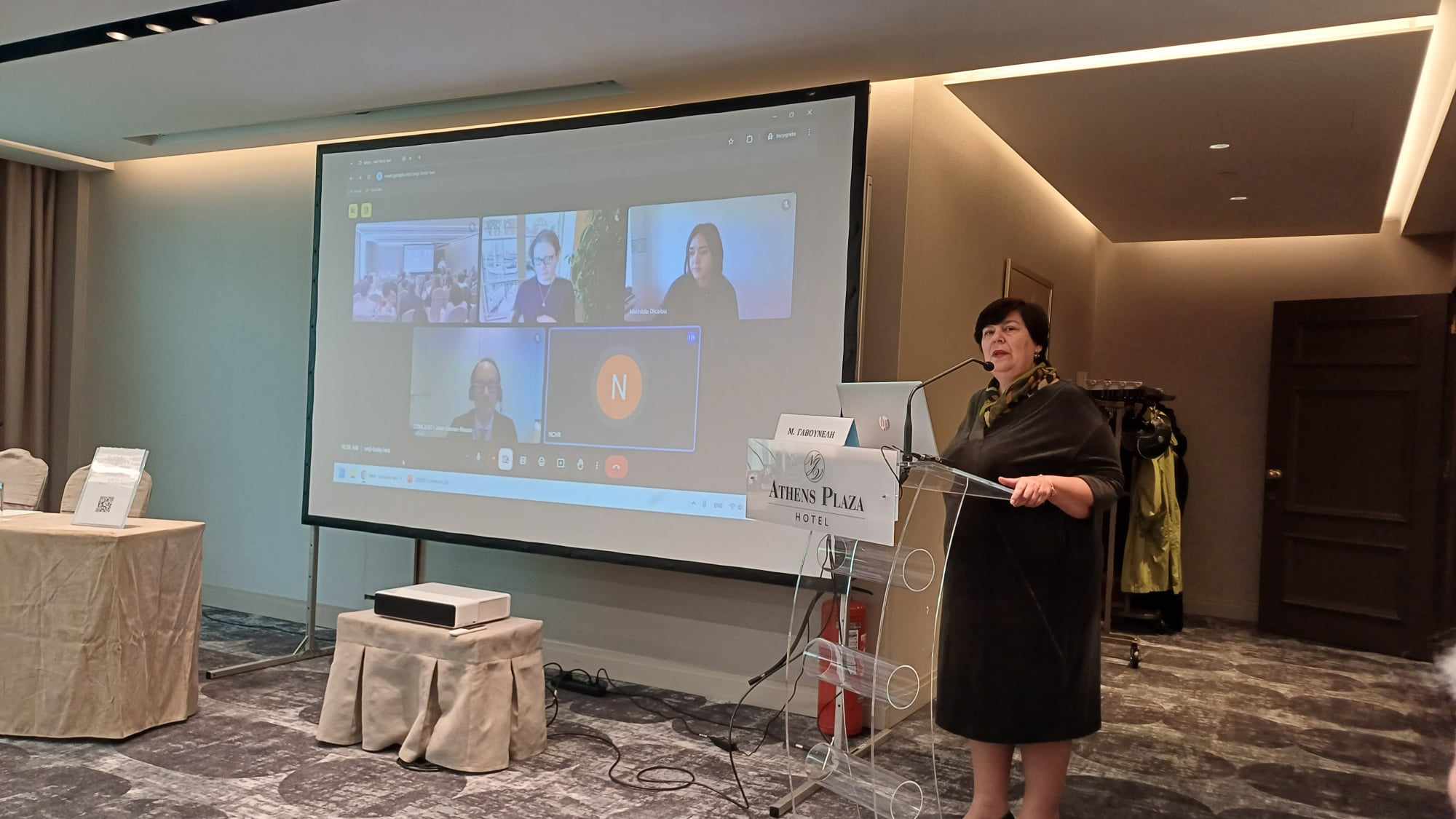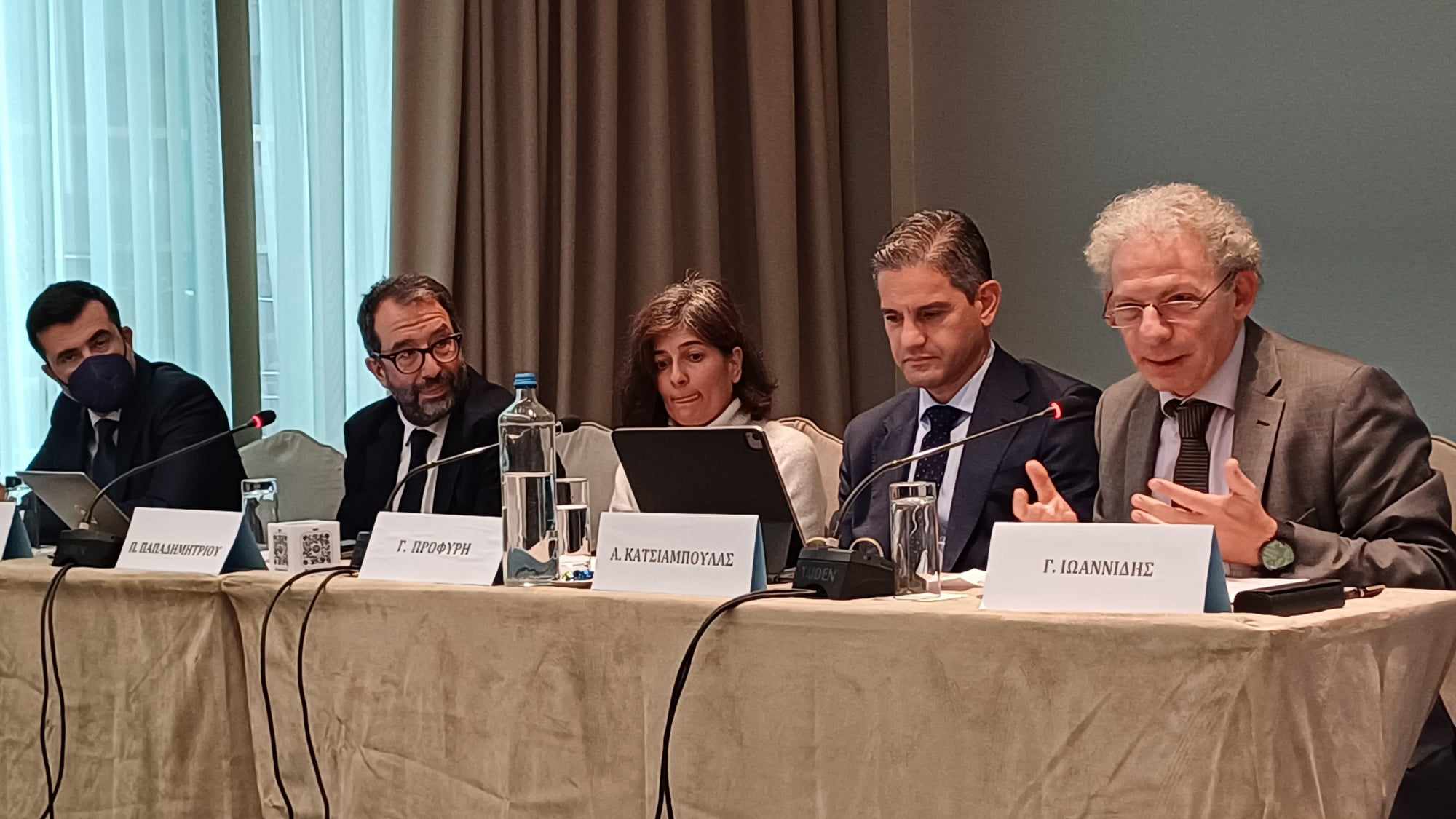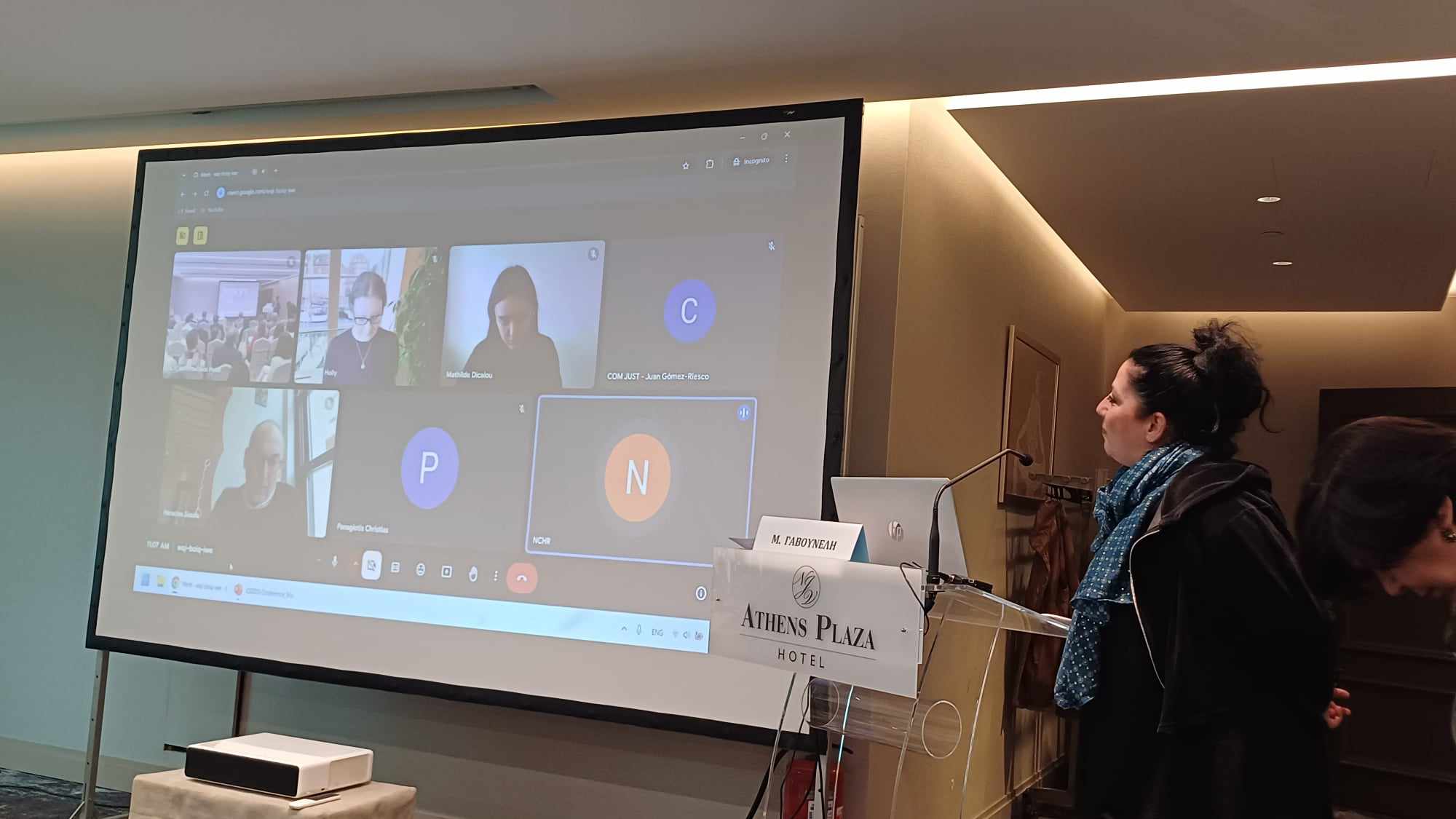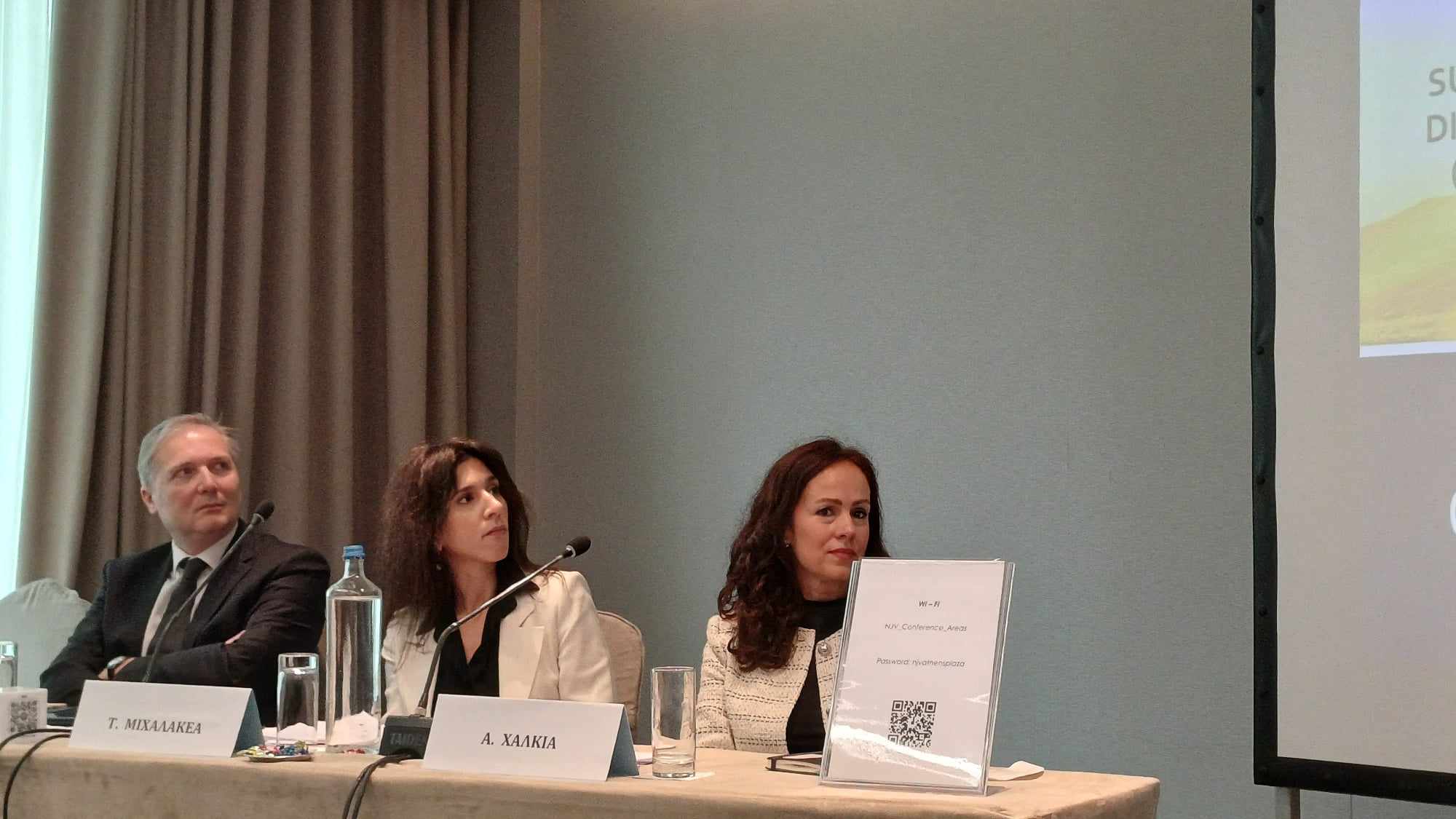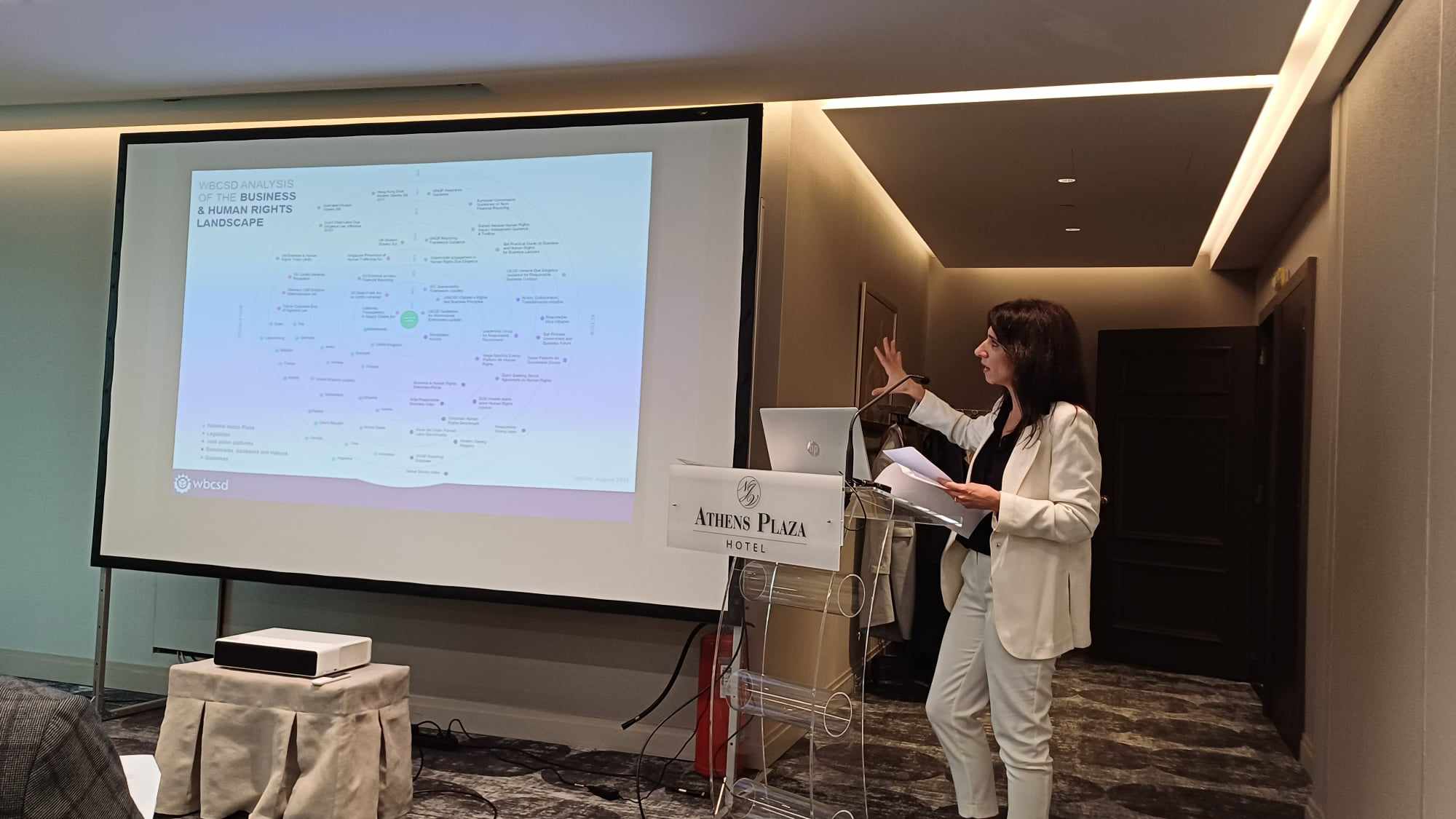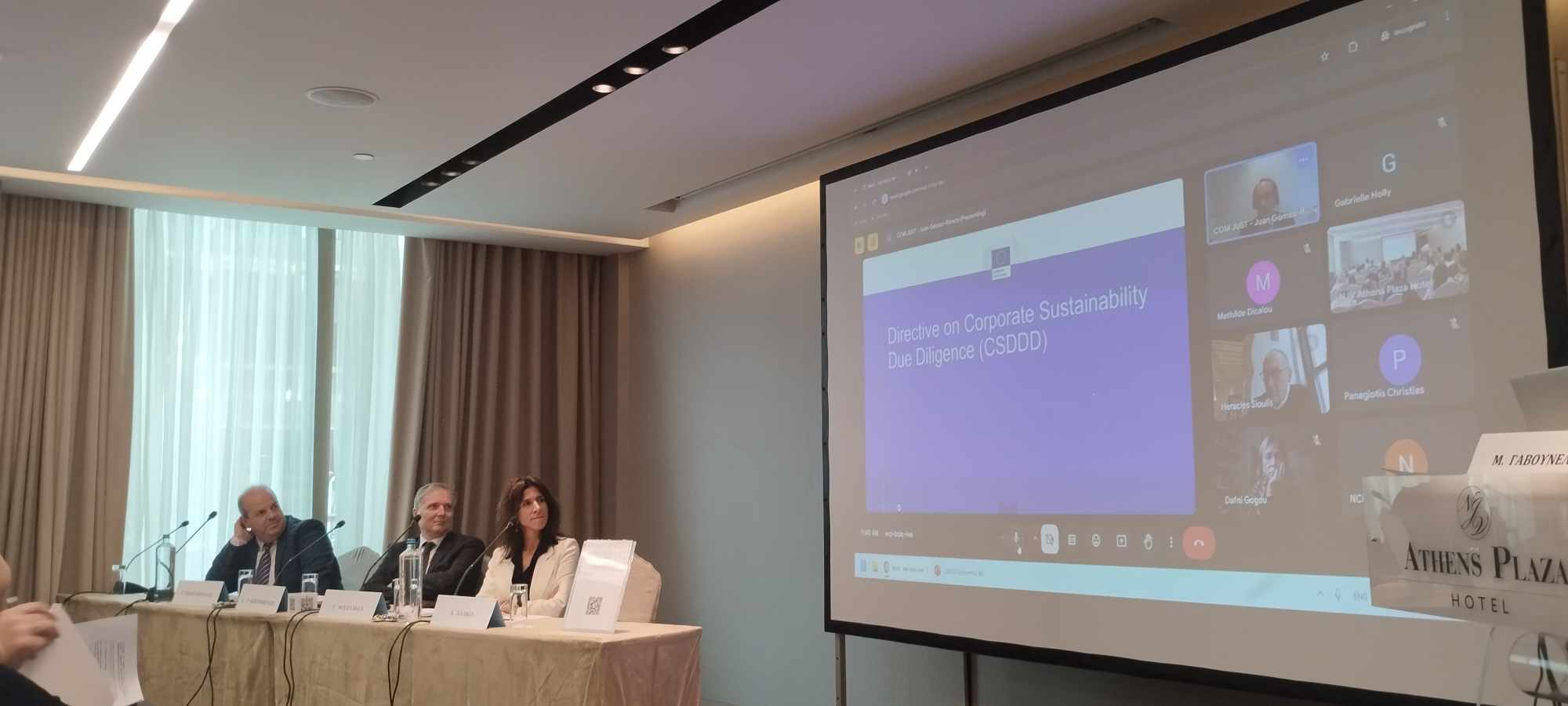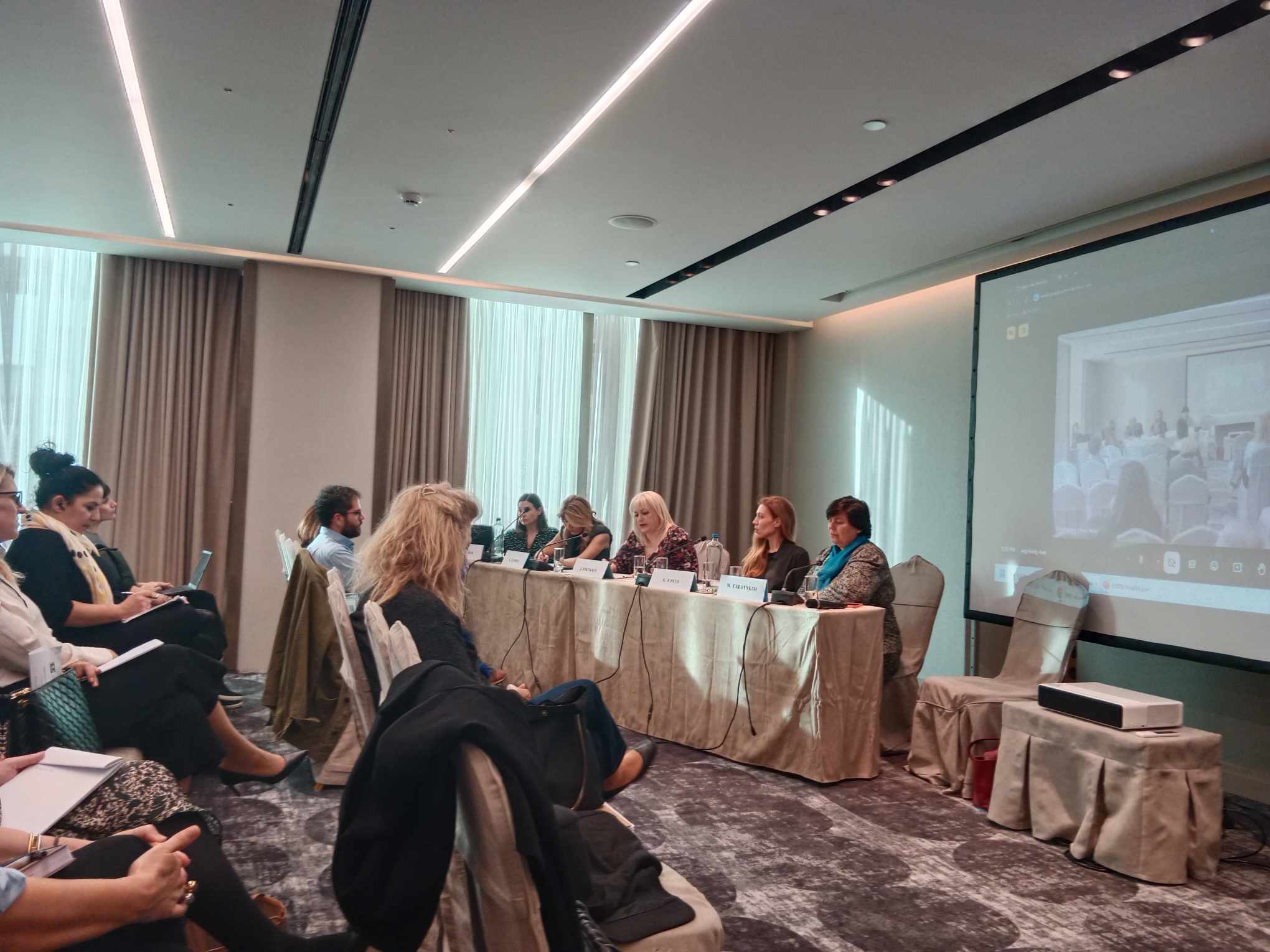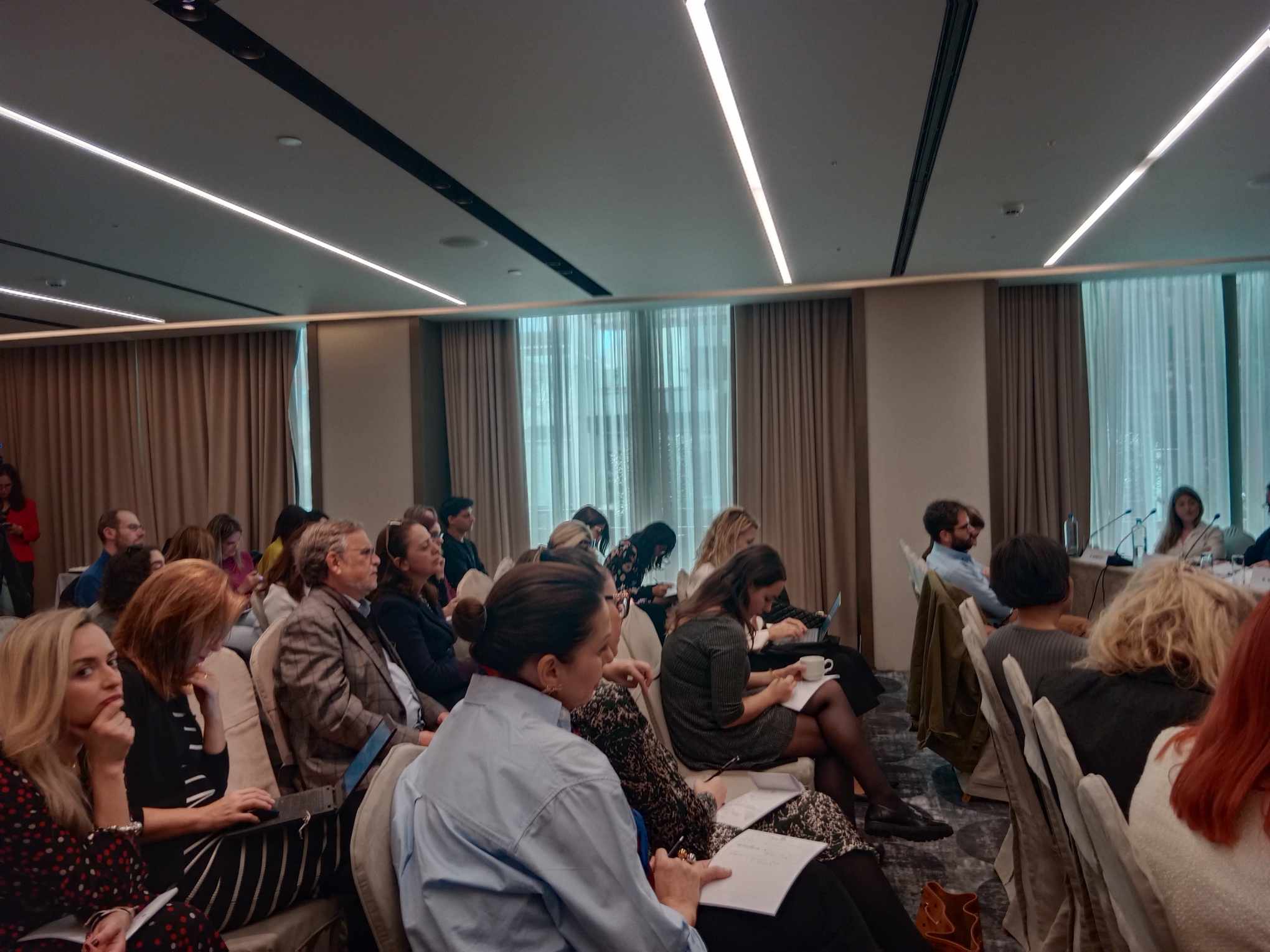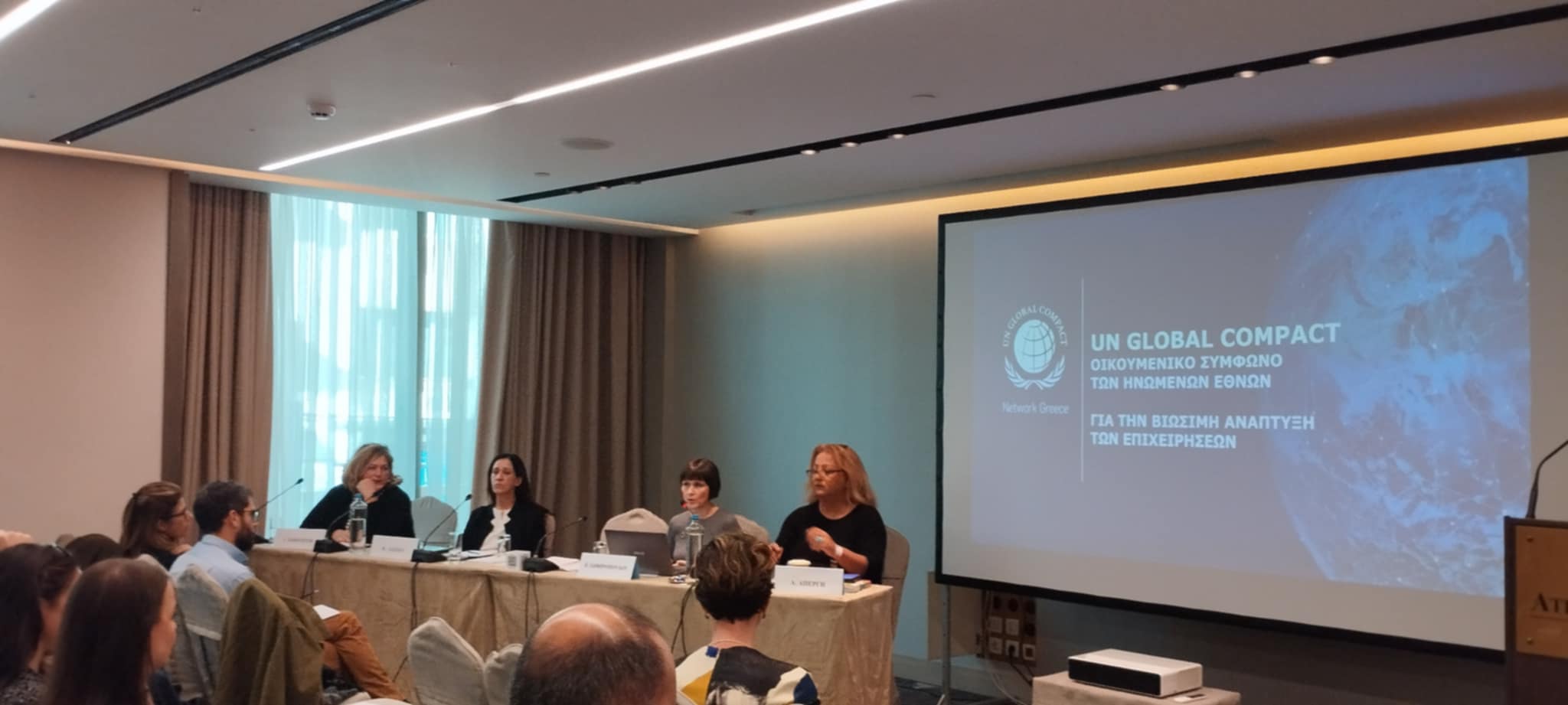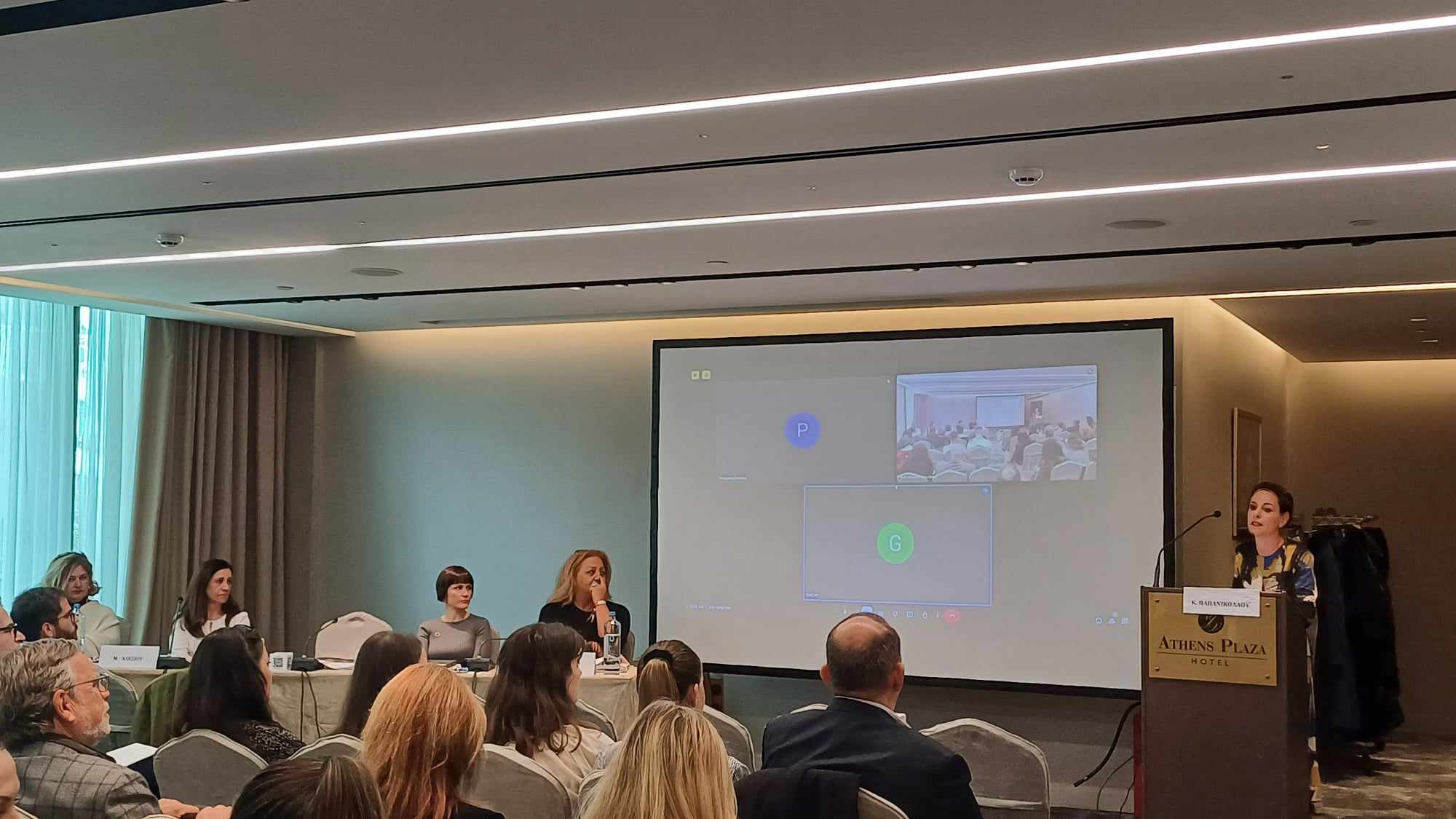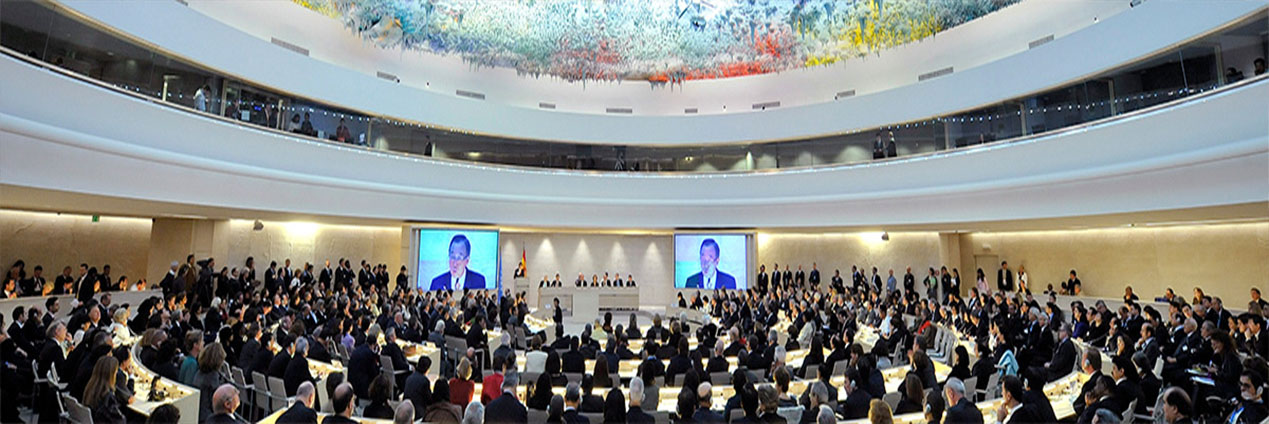Business and Human Rights under the European Directive 2024/1760 on Corporate Sustainability Due Diligence
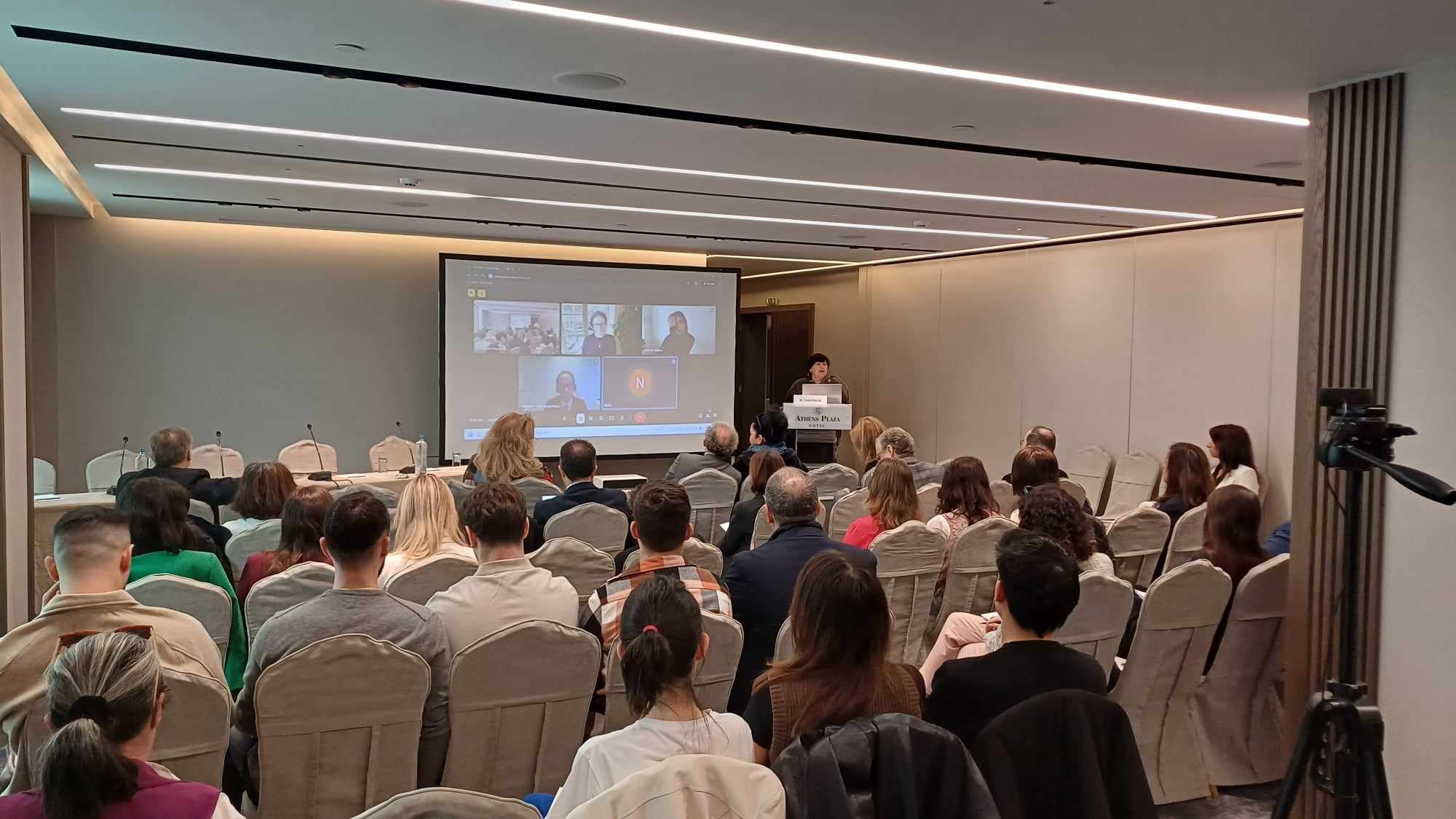
Athens, 26 November 2024
With the participation of 36 speakers representing the Greek State, the European Union, the corporate sector, civil society, employers' organisations, transnational institutes as well as European and international agencies with the necessary expertise, such as the Danish Institute for Human Rights and the UN Global Compact Network Greece, a two-day conference entitled: “Business and Human Rights under the European Directive 2024/1760 on Corporate Sustainability Due Diligence”, was carried out by the Greek National Commission for Human Rights, on 21 and 22 November 2024.
The two-day conference, together with the special report to be published on business and human rights in Greece, is part of the project carried out by the GNCHR in collaboration with the Danish Institute for Human Rights, entitled: «Strengthening Corporate Responsibility and Human Rights Compliance under the CSDDD in Greece». The aim of the conference was to present the Directive, to highlight in practice the importance of the early dialogue between all relevant stakeholders for its optimal transposition and to examine the challenges in its implementation, with a specific focus on the supervision of companies falling within its scope.
Following what the two-day conference highlighted, of crucial importance for the transposition of the Directive is the early and constant institutional cooperation between the State and the GNCHR, the national institution for the protection and promotion of human rights, to ensure the Country's compliance with its international and European obligations, the promotion of corporate sustainability due diligence and the effective national protection of human rights.
Further critical issues from the perspective of the balance to be struck between the protection of human rights and the promotion of entrepreneurship were highlighted from the contributions made by the guests and the ensuing debate:
- The Directive should be a catalyst for entrepreneurial action and an international human rights reference point.
- Effective compliance with the Directive, along with the integration of the equality dimension in the protection of human rights, is a strategic necessity for entrepreneurship in an international environment with increasing competition requirements
- Readjustment of public administration policies plays a key role in providing the necessary information, support and assistance to facilitate business compliance with the Directive in the new regulatory environment.
- For the effective exercise of the powers provided for the supervisory authorities, a clear enabling legal framework, sufficient resources and modern tools for monitoring, assessment and imposition of sanctions for non-compliance are prerequisites.
- Equality, diversity and inclusion are key to the implementation of the Directive, with civil society playing a crucial role in highlighting social dialogue as a basic standard for the identification and assessment of the gravity of the infringements, with a view to properly defending human rights.
The Press Release in pdf file
